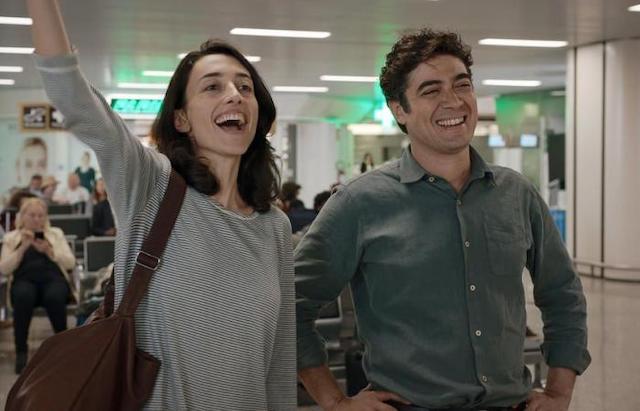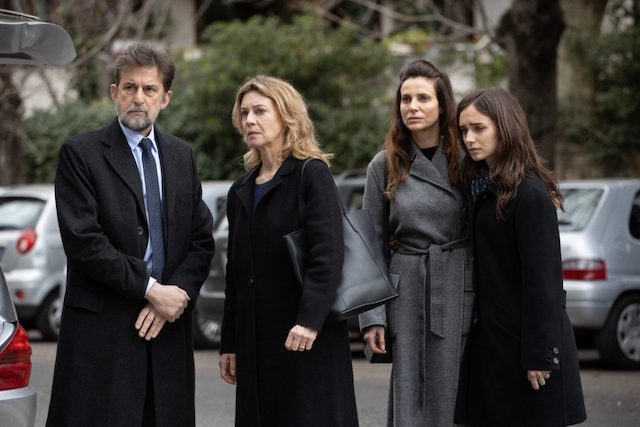After winning the Palme d’Or in 2001 with The Son’s Room, Moretti returned at Cannes with Three Floors. The story follows three families living inside the same building in Rome, all of them dealing with their own drama. Based on the Shalosh Qomot novel by Israeli author Eshkol Nevo, Moretti adapted for the first time in his career someone else’s story. Despite the Italian director’s efforts, an underlying sadness marks his latest work, making it a gloomy story in contrast with the sunny setting.
The first family sees judge Vittorio (Nanni Moretti) and his wife Dora (Margherita Buy). They struggle with the upbringing of their reckless son (Alessandro Sperduti), who doesn’t share his parents’ values. A few floors below, Lucio (Riccardo Scamarcio) and his wife Sara (Elena Lietti) are too busy with their lives to take care of their daughter, Francesca. They often leave her in the care of a gentle couple of elders, Giovanna (Anna Bonaiuto) and Renato (Paolo Graziosi). The third household comprises Monica (Alba Rohrwacher) and her always-missing-for-work husband, Giorgio (Adriano Giannini). A sudden tragedy will link all these families. The plot will then follow these families’ drama in three separate five-year periods (2010, 2015, 2020).
Moretti put together a cast of relevant actors, highly appreciated inside and outside of Italy. However, most of them were not particularly inspired by the story with the exceptions of Margherita Buy and Alba Rohrwacher. In this coral drama, it is impressive how the protagonists often don’t even flinch even though their world is about to burn to ashes. While the maternal figure always turns out as positive (the comprehensive Dora, the all-rounder Monica and the faithful Sara), the father figures seem too rigid, absent, or obsessed by their paranoia. The result is a series of egoistic fathers who never manage to sacrifice the singularity of the characters. Above all stands Riccardo Scamarcio, who was meant to lead the story as Lucio, but alternates moments of great intensity with others that are almost lifeless ultimately. Lucio is sure that the mentally ill Renato might have abused his daughter. His paranoia ignites a series of chain reactions that will bring him to get too close to Renato’s underage granddaughter, Charlotte (Denise Tantucci).

The direction of the movie is relatively static. Moretti used as little movement as possible to underline the immobility of this situation. There are no aerobatic flights, but the camera’s movement is essential and serves the story well. If the three-floored building is an allegory of Italy or Europe, then the direction perfectly underlines the current immobility in the country. Moretti observed the progressive decay of a rigid and suffocating petty Italian bourgeoisie without judging the characters or taking a side with one of them. The protagonists are all-around characters, presented with their qualities and defects, but none stand out as role models.
Moretti poured his soul into his work as usual by directing, penning the script, and acting, but the outcome is not the Italian artist’s best work. In his 45-year career, the Italian director always helmed films based on personal experiences. Since his directorial debut with I Am Self Sufficient, Moretti has featured a subtle humor throughout his filmography, but it is missing here. Perhaps, the highly metaphorical source for Three Floors was too elusive to be condensed in a two-hour movie. All considered, it’s worth a watch, but Moretti’s fans are used to much better.
SCORE: 6/10
As ComingSoon’s review policy explains, a score of 6 equates to “Decent.” It fails to reach its full potential and is a run-of-the-mill experience
Disclosure: The critic attended a screening at the Cannes Film Festival for the Three Floors review.










